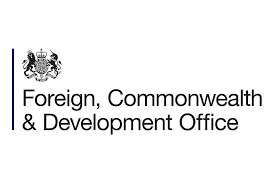Analysis
Comment: The Lord, the Policing College and the front line

The appointment of the former austerity policing minister Lord Nick Herbert to the College of Policing rightly raised a few eyebrows, writes Chris Hobbs
Amidst the constant headlines concerning the pandemic interrupted by the attempt to subvert American democracy, news of an appointment in respect of the College of Policing could hardly have been expected to cause even a minor ripple amongst the mainstream news media.
Yet, what began as a brief announcement morphed into a tidal wave of bewildered angry, unmitigated fury from across most sections of the police community.
To the general public, the appointment of Lord Nick Herbert as chair of the College of Policing would be of little consequence although there may well be raised eyebrows in respect of his pro-rata salary of £135,000 per year for ‘one or two’ day’s work a week. Perhaps also, there might be one or two queries, in the wake of pandemic linked ‘mates contracts,’ as to the recruitment process for this post.
Recent history
A minimum of research however would soon reveal the reason for the unbridled anger. Herbert was a ‘shadow Minister for Police Reform’ when the Conservatives were in opposition. In 2010, as the policing community will clearly remember, the Conservative-led coalition meant that the template for this reform could be implemented with the inevitable result of savage policing cuts.
True, there was a review by Tom Winsor, the result of which mirrored the pre-election views of both Cameron, May and Herbert namely that more could be extracted from the police service for less.
Herbert’s appointment as policing minister in Theresa May’s Home Office inevitably means that he will forever be linked to the damaging cuts that followed. These cuts came at a human cost to dedicated police officers and staff.
West Midlands Police’s rapid implementation of cuts meant that all officers who had reached 30 years service found that their services were being dispensed with. I remember talking to a detective in the West Midland’s force who worked in close cooperation with the Met’s flagship Operation Trident. I won’t forget both the despair and bitterness of that conversation which occurred shortly after he received his notice.
The destruction inflicted on the police service will be written into history; Around 22,000 officers were ‘lost’ plus thousands of police staff including more than 6,000 PCSO’s together with the closure of more than 600 police stations leaving substantial towns and gang ridden areas without an effective police presence. These cuts and closures resulted in the inexorable death of community policing in many parts of the country together with the drastic reduction of mounted and dog units.
The College of Policing and hearts and minds.
Herbert’s appointment will do little to endear the College of Policing to rank and file officers even if it is acknowledged that this appears to be a Home Office appointment. Priti Patel, as Home Secretary, has made some progress in building bridges across the chasm that existed between police and the government but this appointment is likely to damage those foundations.
The College of Policing has, almost since its inception, been regarded as the bastion of policing academia’s superiority and arrogance. It’s early appointment, albeit unpaid, of a leftist lawyer known for her constant criticism of police to an advisory group reporting on undercover policing resulted in significant criticism.
Also, early in its existence, a College of Policing review and report into stop and search undertaken by three academics was less than favourable. The controversial conclusion which, in essence, suggested that at best the tactic made only a marginal difference, coincided with Theresa May’s successful pressure on police to dramatically curb stop and search.
The assertion that policing should be undertaken by officers with degrees also provoked both debate and resentment. Implicit in the proposal was the suggestion that serving officers without degrees were somehow inferior; policing academics could almost be heard singing ‘you’re thick and you know you are,’ as they championed their cause together with that of direct entry.
The pandemic induced College of Policing online promotion exam also hit problems with IT difficulties on the big day, although there was praise for the empathy shown by those having to deal with frustrated, stressed officers.
It would be churlish to claim that the College of Policing fails to produce anything of value to policing; it clearly does but it has a long way to go before it wins the ‘hearts and minds’ of a policing front line that is enduring a torrid time at present; that ‘torrid time’ having been aggravated by the cuts endured since 2010.
An angry response
Thus, the quote by Nick when his appointment was announced was especially galling.
“This a demanding time for policing but also an exciting one as we recruit 20,000 new officers.”
John Apter, the Chair of the Police Federation, in a brief tweet, diplomatically stated that it was an important appointment and that he looked forward to working with him.
The Metropolitan Police Federation, however, didn’t mince their words.
The highly respected former Chief Superintendent and author John Sutherland, normally temperate when dealing with policing issues on social media, was short, sharp and damning.
Recently retired Devon and Cornwall officer and author, Harry Tangye was even blunter in his assessment.

The handful of those welcoming his appointment on social media appeared to consist of Conservative police and crime commissioners or very senior police officers.
However, these were subsumed in a tidal wave of angry condemnation at this appointment.
In summary, it would be fair to say that the policing front line has never felt that the College of Policing ‘had their backs’ since its inception; the appointment of Lord Herbert will do little to ameliorate that perception. Perhaps an apology and an acknowledgement of the damage wreaked by those cutbacks could be the start of a healing process.
Chris Hobbs is a retired Metropolitan Police officer who worked in Special Branch
Category: GovernancePolicy
Tags: College of PolicingCommentConditionsFinance and AuditFree ArticlesGovernment PolicyLeadershipParty PoliticalPayPolice & CJ organisationsRecognitionRewardTraining
Advertisement
Job of the week
Overseas Security Advisor

- Foreign, Commonwealth & Development Office
- London with some overseas travel
- Total Package: £62,500. This includes a non-pensionable, non-consolidated location allowance of £5,000
We lead the UK’s diplomatic, development and consular work around the world. We employ around 17,000 staff in our global network of 281 offices worldwide. Our UK-based staff work in King Charles Street in London, Abercrombie House in East Kilbride and in Milton Keynes.
Read more





